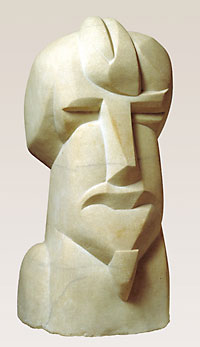HURRY UP PLEASE IT'S TIME
HURRY UP PLEASE IT'S TIME
What don't you understand about that? If you don't understand that, then you don't understand the language of last call.
Here's what is great about those lines. There is only word that is more than one syllable, and it is only two, and it has a happy (though in the case of this context, sad) long e sound at the end. These lines are direct. They are to the point. There is no camoflage or ulterior meaning. It means exactly what it says. The redunacy only comes because it wants to make sure you heard.
Oh, I've been reading your American poetry, and some of it is so ... so ... why would you want to alienate your reader? Come on. If you are not speaking to everyone, then you are elitist. LangPo, despite your prose theories (vide L=A=N=G=U=A=G=E) to be be for everyone, you are so elitist in your poetry. Why?
The language of last call speaks to the everyday and the genius. If you don't understand the monosyllabics of last-call language, then you shouldn't be writing poetry.
Oh, sure I love the LangPo experiments. They explore language. Charles Bernstein is at his best when he is being funny, not nonsensical.
The language of poetry should be the language of last call. It should be easy. To the point. Accessible. In the morning of the hangover, when the mind is most clear and not distracted, then it can concentrate on deeper levels.
If you don't understand last-call language, then you are prententious (pretending to be smart). The genius can explain the most complicated ideas in everyday-speak. The poet speaks no unnecessary words in no unnecessary grammar. The grammar of last call, even if not grammatically correct, is the most honest.
Last-call language is honest. It has an urgency. Nothing should be misunderstood at last call. You have one chance to get one more drink. That is it. To say "last call" it in any other means leaves people scratching their heads with empty drinks. At last call, there should be no empty drinks. At last call, there should be no empty language. At last call, the underlying meaning should be understood by context. "Hey, you wanna go" from a man to a man or man to a group of people is easily understood as, "Let's go drink more." From a man to woman or woman to man, it means, let's go drink some more and see what happens. It's that easy.
The last-call language is the language of poetry.
There's more to this, but last call approaches. There is always tomorrow to expand!
Saturday, March 31, 2007
Subscribe to:
Post Comments (Atom)

No comments:
Post a Comment